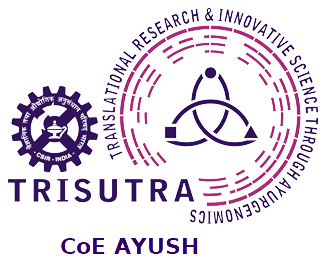

Copyright 2024
| PMID | Allele | Disease | Population | Drug Names | SNP | Class | Sentence |
|---|---|---|---|---|---|---|---|
| 3514234 | HLA (HLA) | transplantation | NA | NA | NA | unclassified | |
| the transplantation of t cell-depleted hla-haploidentical bone marrow can correct the severe combined immunodeficiency disease (scid) caused by the inherited absence of t lymphocytes. | |||||||
| 3514234 | HLA (HLA) | severe combined immunodeficiency | NA | NA | NA | unclassified | |
| the transplantation of t cell-depleted hla-haploidentical bone marrow can correct the severe combined immunodeficiency disease (scid) caused by the inherited absence of t lymphocytes. | |||||||
| 3514234 | HLA MISMATCHED (HLA-MISMATCHED) | bone marrow transplantation | NA | NA | NA | unclassified | |
| self-tolerance to host and donor following hla-mismatched bone marrow transplantation. | |||||||
| 3516042 | HLA IDENTICAL (HLA-IDENTICAL) | transplantation | NA | NA | NA | unclassified | |
| recipients of hla-mismatched, t-cell-depleted transplants had a higher rate of bacteremia (1.33 compared with 0.64 per patient, p = 0.05) and especially systemic fungal infections (0.92 compared with 0.14 per patient, p less than 0.001) than recipients of transplants from hla-identical donors without t-cell depletion; two thirds of these infections occurred during the granulocytopenic period early after transplantation. | |||||||
| 3516042 | HLA IDENTICAL (HLA-IDENTICAL) | fungal infections | NA | NA | NA | unclassified | |
| recipients of hla-mismatched, t-cell-depleted transplants had a higher rate of bacteremia (1.33 compared with 0.64 per patient, p = 0.05) and especially systemic fungal infections (0.92 compared with 0.14 per patient, p less than 0.001) than recipients of transplants from hla-identical donors without t-cell depletion; two thirds of these infections occurred during the granulocytopenic period early after transplantation. | |||||||
| 3516042 | HLA IDENTICAL (HLA-IDENTICAL) | bacteremia | NA | NA | NA | unclassified | |
| recipients of hla-mismatched, t-cell-depleted transplants had a higher rate of bacteremia (1.33 compared with 0.64 per patient, p = 0.05) and especially systemic fungal infections (0.92 compared with 0.14 per patient, p less than 0.001) than recipients of transplants from hla-identical donors without t-cell depletion; two thirds of these infections occurred during the granulocytopenic period early after transplantation. | |||||||
| 3516042 | HLA MISMATCHED (HLA-MISMATCHED) | transplantation | NA | NA | NA | unclassified | |
| recipients of hla-mismatched, t-cell-depleted transplants had a higher rate of bacteremia (1.33 compared with 0.64 per patient, p = 0.05) and especially systemic fungal infections (0.92 compared with 0.14 per patient, p less than 0.001) than recipients of transplants from hla-identical donors without t-cell depletion; two thirds of these infections occurred during the granulocytopenic period early after transplantation. | |||||||
| 3516042 | HLA MISMATCHED (HLA-MISMATCHED) | fungal infections | NA | NA | NA | unclassified | |
| recipients of hla-mismatched, t-cell-depleted transplants had a higher rate of bacteremia (1.33 compared with 0.64 per patient, p = 0.05) and especially systemic fungal infections (0.92 compared with 0.14 per patient, p less than 0.001) than recipients of transplants from hla-identical donors without t-cell depletion; two thirds of these infections occurred during the granulocytopenic period early after transplantation. | |||||||
| 3516042 | HLA MISMATCHED (HLA-MISMATCHED) | bacteremia | NA | NA | NA | unclassified | |
| recipients of hla-mismatched, t-cell-depleted transplants had a higher rate of bacteremia (1.33 compared with 0.64 per patient, p = 0.05) and especially systemic fungal infections (0.92 compared with 0.14 per patient, p less than 0.001) than recipients of transplants from hla-identical donors without t-cell depletion; two thirds of these infections occurred during the granulocytopenic period early after transplantation. | |||||||
| 3516042 | HLA MATCHED (HLA-MATCHED) | bone marrow transplantation | NA | NA | NA | unclassified | |
| the infectious complications of bone marrow transplantation were reviewed in 43 adults, 22 of whom received transplants from hla-matched donors without t-cell depletion and 21 of whom received donor marrow pretreated with the murine anti-t-cell monoclonal antibody ct-2 and complement. | |||||||


Copyright 2024